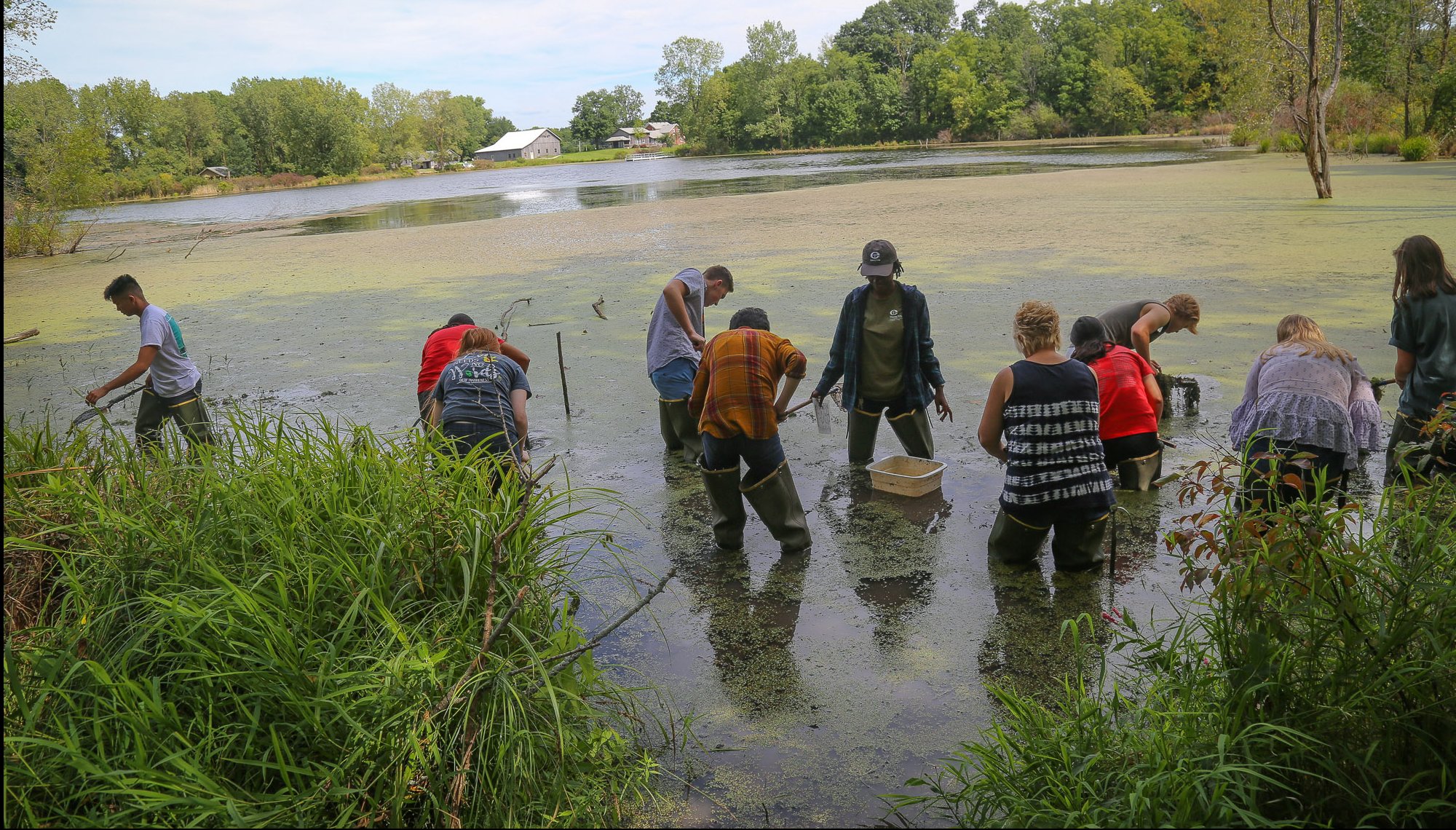
Academics
Education is, by nature, interdisciplinary and integrates many fields
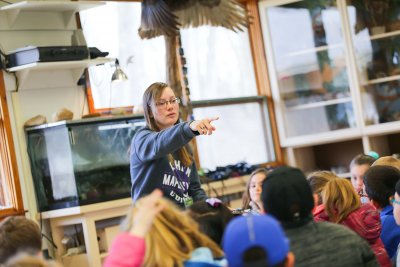
Throughout Merry Lea’s graduate program, ecological learning and pedagogical skills are enmeshed.
Our approach depends on knowing and understanding systems-thinking. We learn about natural history, research methods and land management to understand ecological systems. Drawing from principles, history, and issues of environmental education and from leadership skills, we learn to work in social systems. In the faith and peacemaking seminar we think about how to communicate between worldviews, and in Arizona or the Bahamas we put it all together.
“Merry Lea’s focus on interdisciplinary, inclusive, experiential, and constructivist teaching and learning makes the program stand out from other graduate programs. They don’t just talk about learning through action and participation–they do it.”
Hannah Miller, 2010 grad
For an overview of the year see the academic schedule.
Courses
A study of the plants and animals of this region and the ecosystems in which they are found. Emphases on:
- interrelationships in ecosystems
- the function of ecosystems, both how they operate and how they impact surrounding systems and humans
- identity of the organisms that comprise the ecological community. Students will investigate the ecological relationships of the organisms identified as well as behaviors and life cycles.
This course investigates a wide range of research strategies that an environmental educator may use and/or encounter in the course of their career. The applied approach is primarily as a leader or director who is either evaluating an existing program, or designing a new program. We will also review and interpret both qualitative and quantitative studies (i.e. gathering information on people or natural resources) in ecological, social, and educational research and spend significant time conceptualizing your year-long project.
This is an introductory environmental education course for students from a broad range of backgrounds. Throughout the course we consider the foundations, present, and future of the field of environmental education and its interconnections with other educational and social movements. We will also interact with theories of human learning, and teaching strategies. Students experiment with the process of curriculum design in this course, writing an educational program for an audience of their choice. Students also collaboratively design and implement an educational program for the Elkhart County Fair.
Education students will join the Merry Lea Environmental Education Outreach team in the delivery of a variety of high quality environmental education programs. Through the practicum, participants will gain experience teaching a wide range of age groups from kindergarten through high school, and adults. Educational programs include onsite day programs for public, private, and/or home school students, after-school environmental education programs for elementary school students, and selected public programs. Participants will catalyze their growth as environmental education practitioners through reflective writing, academic study, dialogue and conversation, and a culture of feedback.
Your project is designed to investigate a topic, issue, strategy, methodology or practice in environmental and sustainability education. This is an investigation that requires creative insight and creative output, intended to be driven by your passion and interest in a topic within one of the following themes: an environmental issue, an ecological problem, or pedagogical challenges and possible solutions. You will have FOUR major components:
- The work itself whether you are conducting a question driven investigation, or you are problem solving with an organization
- A major, thesis length paper
- Curriculum designed for two distinct audiences
- A presentation. This is an applied experience and project that can be useful long into your career. Throughout it all ask yourself, “What does this mean for me as an educator?”
Learn more about this yearlong project and past graduate students’ projects.
A study of current environmental issues facing society. Topics include ethics, citizenry, environmental justice, theological implications and organizations addressing issues. The various facets of the history of environmental education and outdoor education will be reviewed. A study of important literature relevant to all topics will be included.
A study of essential skills and practices for leadership in an environmental education center. Topics include knowing self, leadership models and patterns, personnel management, strategic planning, personality styles, financial and resource management, budget preparation, board utilization, fundraising and capital campaign, day-to-day functioning of a nature center, and team development.
The overall objective is to increase our ability to communicate with people who may or may not share our worldview about the environment. Specifically, we will investigate the nexus of faith, peacemaking and the environment. The topic is infinitely large so we can only start the conversation. We will ask: “How does faith inform the relationship between humans and their environment? How does peacemaking work in the context of the environment? How do people with different worldviews communicate peacefully to benefit the environment?”
This three-week, immersion style, cross-cultural, experience is designed to learn about a new ecosystem, work with intercultural groups, and design EE curriculum within an intercultural context. Participants will investigate a broad spectrum of opportunities and challenges for international and/or intercultural non-profits delivering EE to local students, and/or in conjunction with tourism. Although the stay is relatively brief, students will work with local organizations to design place-based curriculum; learn about the relationships between NGOs, government agencies, and businesses; apply natural history skills in a different ecosystem; and investigate first hand the implications of climate change in an intercultural perspective. Courses have and/or may take place in Andros, Bahamas, working with tribal groups in the southwest, the big island of Hawaii, or another suitable location with a different ecosystem from northern Indiana that includes intercultural opportunities.
This is a study of both the theory and practice of managing the “place” for various ecological functions and human values that enhance an environmental education experience. Includes how land management practices need to reflect the economic/social/spiritual values of humans, and the biological functions of the ecosystems it encompasses.
In this course students travel with several faculty members throughout the region to introduce students to a wide range of programs, nature centers, pedagogies, leadership styles, and management strategies in Environmental Education (EE). Visits at organizations range from 1 hour to two days, but typically are 90 -120 minutes. We also investigate critical issues in EE, the interdisciplinary nature of EE, the variations that EE may take, and the decision-making process that will affect them as educators throughout their career. Each student develops professional connections, practical resources, and through written reflections an understanding of EE in the broadest sense.
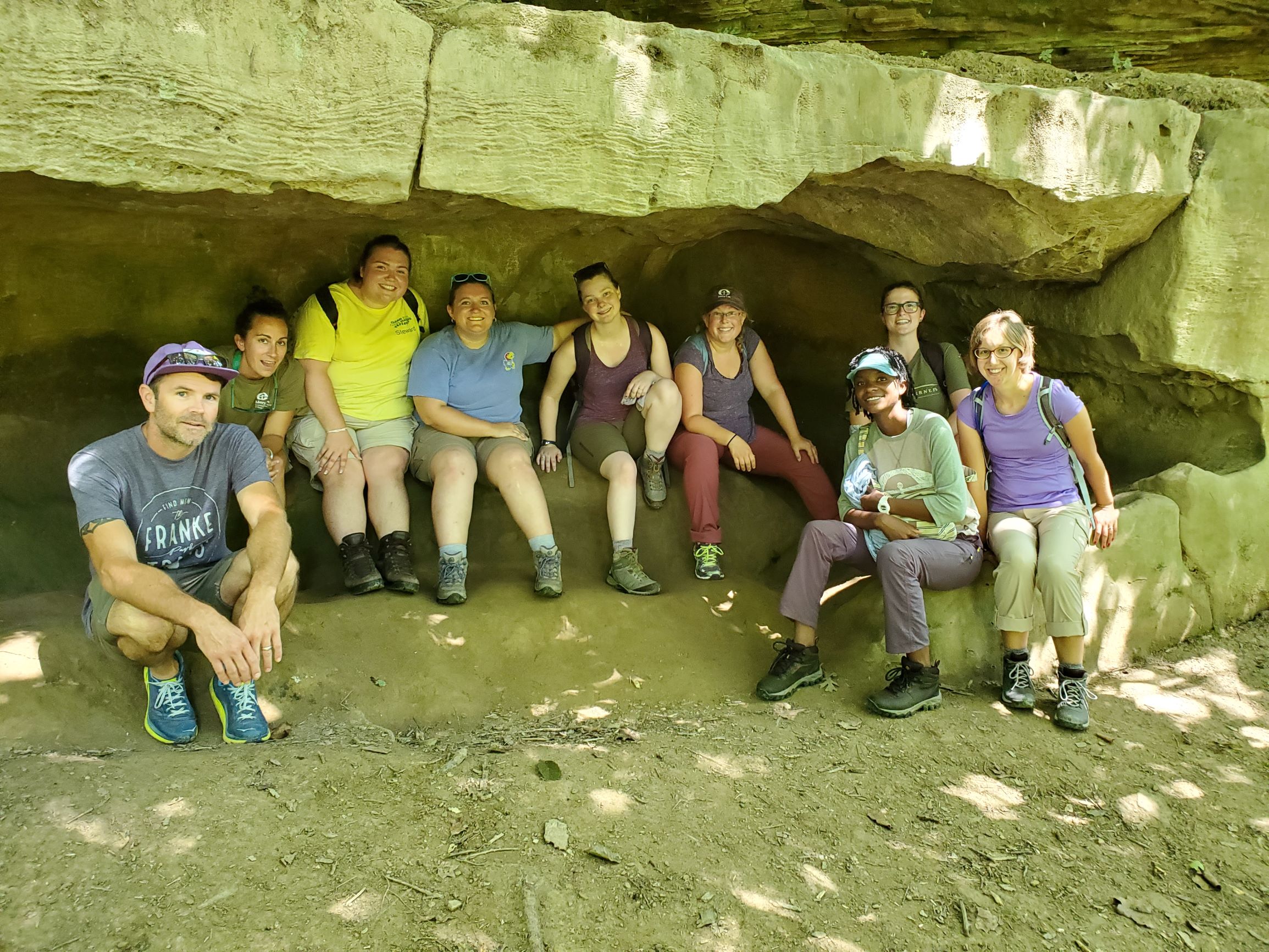
Professional Field Studies
In this course, students travel with faculty members throughout the region to observe a wide range of programs, nature centers, pedagogies, leadership styles and management strategies in environmental education. Students investigate the interdisciplinary nature of environmental education: critical issues, variations the field may take, and the decision-making process that will affect them as educators throughout their career.
Each student develops professional connections, practical resources, and a broad understanding of environmental education. Cohorts have opportunities to participate in national or regional conferences, such as the North American Association for Environmental Education and the Environmental Education Association of Indiana conferences.
Past field studies have included: Indiana Dunes National Lake Shore, the Dunes Learning Center, Kalamazoo Nature Center, Grand Rapids School District, overnight visits in Chicago and Detroit to see urban garden programs, museums, faith-based nonprofits, and the greenest synagogue in the country.
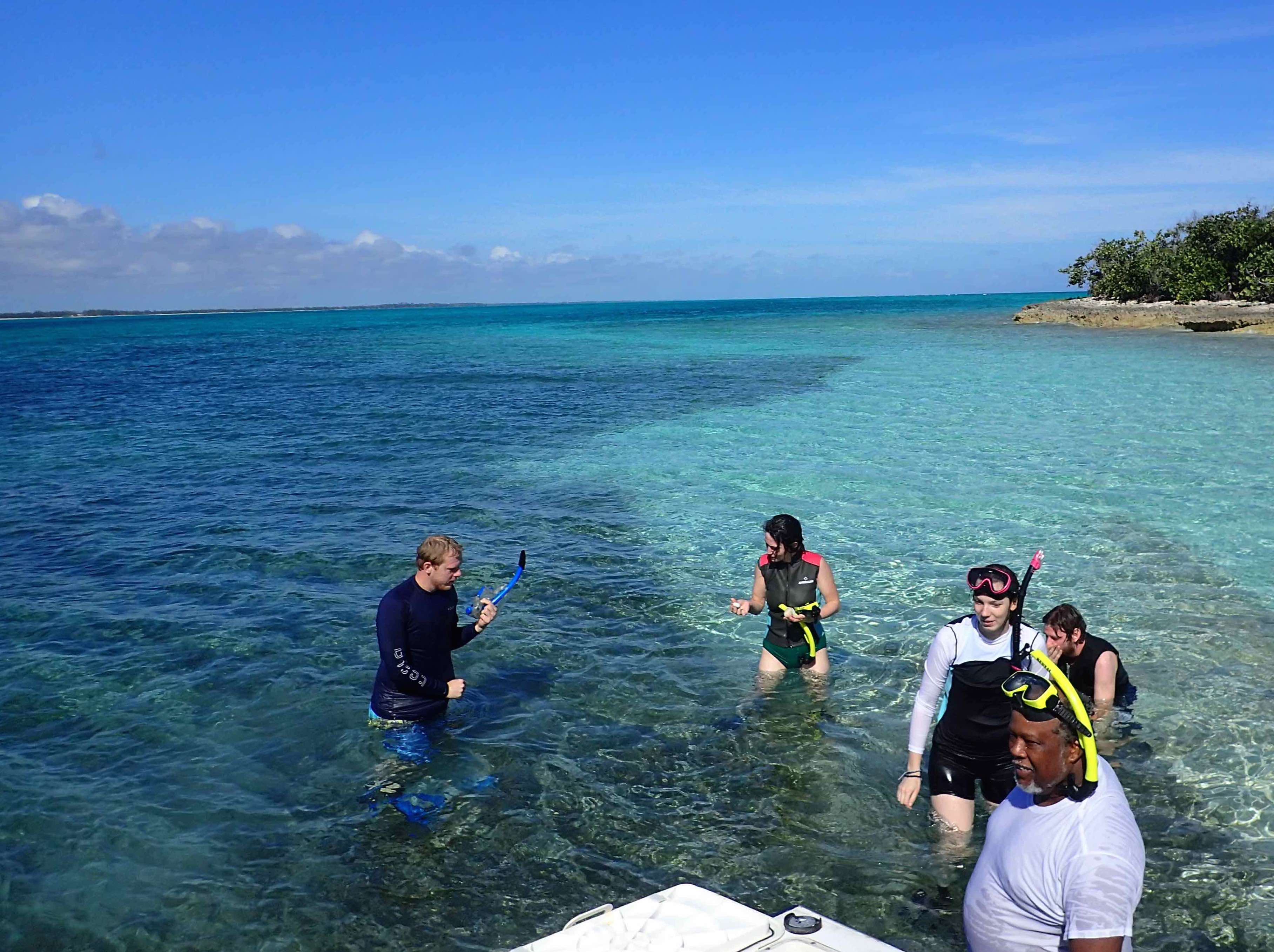
Intercultural Environmental Education
In the course International Environmental Education, graduate students apply their natural history and research skills to learn new ecosystems and contextualize principles of environmental education to imagine, design and deliver curricula through active school programs.
Graduate students work with local community organizations and representatives to design environmental education efforts in new cultural and ecological contexts.
In the past, cohorts have traveled to Andros Island, Bahamas or Arizona. In the Bahamas, we work with a partner organization – the Andros Conservancy and Trust — to make connections with local schools and the national park system to contribute to environmental education and conservation efforts on the island. In Arizona, we work with several schools, local scientists and Hopi representatives to deliver meaningful education to local students and conduct service projects with host organizations.
-
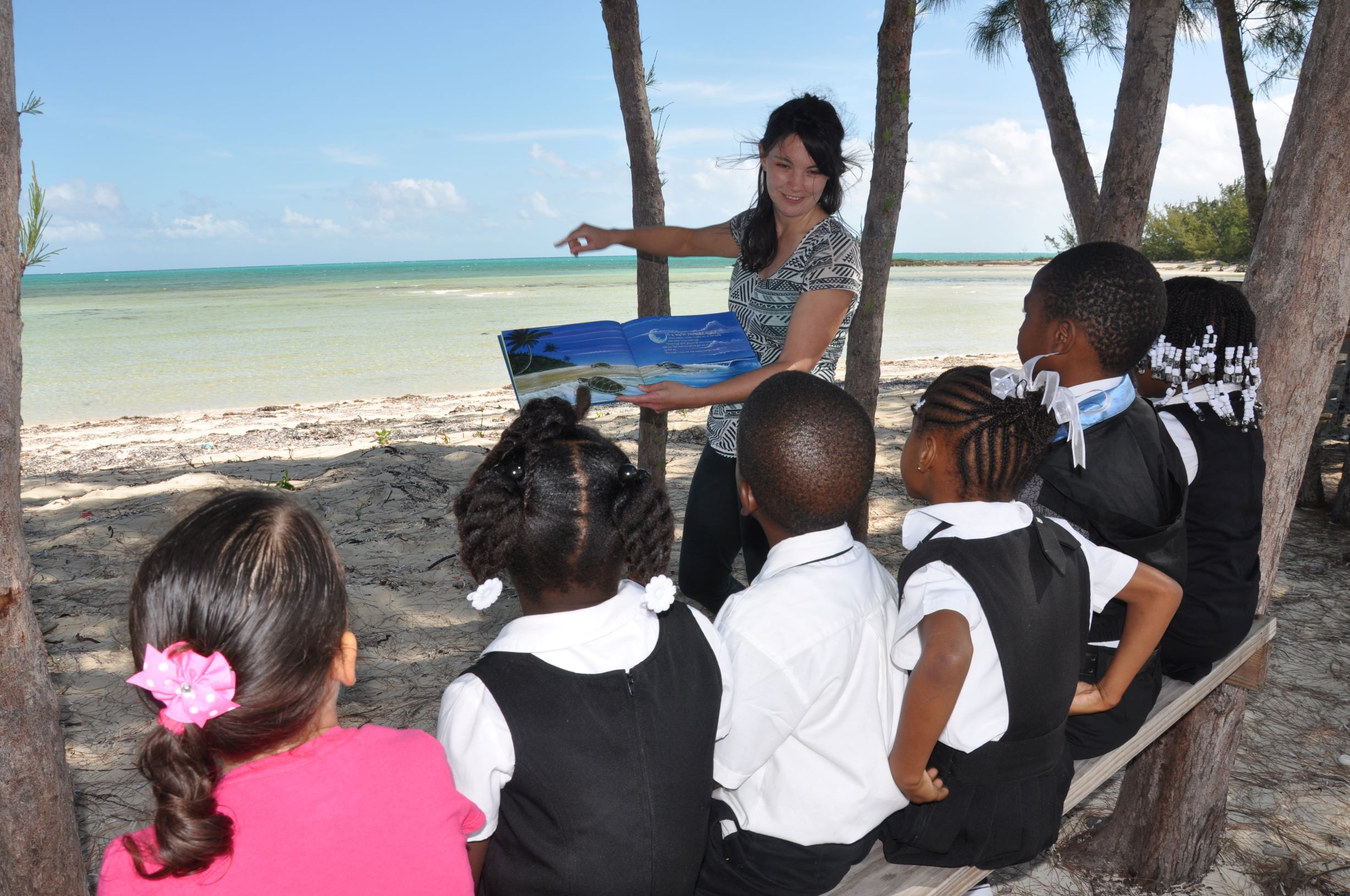
Bahamas
Graduate cohorts work with Bahamians to design environmental education efforts in a new cultural context. An important environmental education issues involves seeing firsthand the implications of climate change on island countries and understanding our commitment to carbon offsets.
-
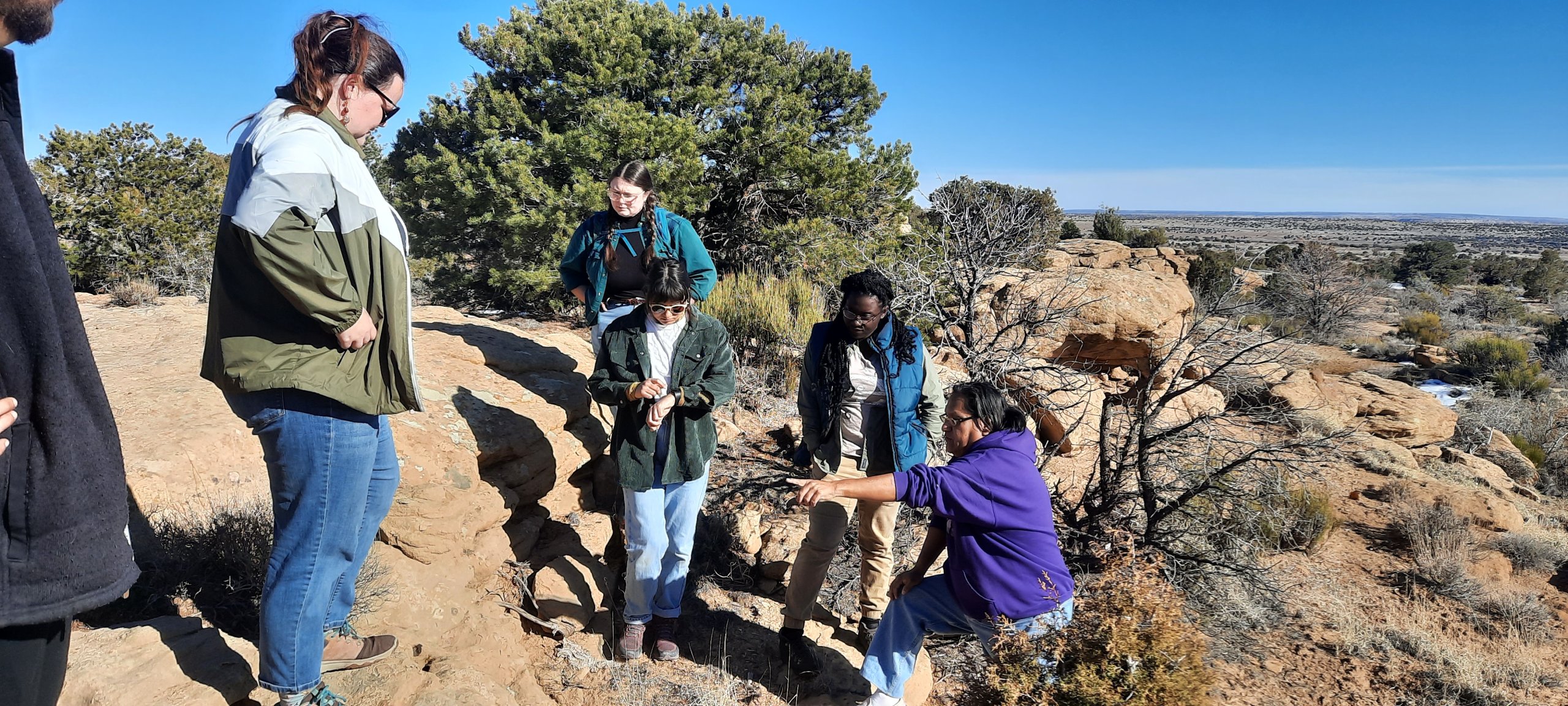
Arizona
Cohorts that travel to Arizona explore different interpretive sites, hike in national parks, teach in different classrooms and learn about the unique ecosystems each place offers. Our '22 master's cohort learned and served at Peace Academic Center, a school located within the Hopi reservation. Lance Polingyouma, Cultural Liaison at the Center, taught the graduate students much about the setting: hiking to the top of second mesa to look at shaggy juniper, types of sandstone, Hopi dryland farming and more.
-
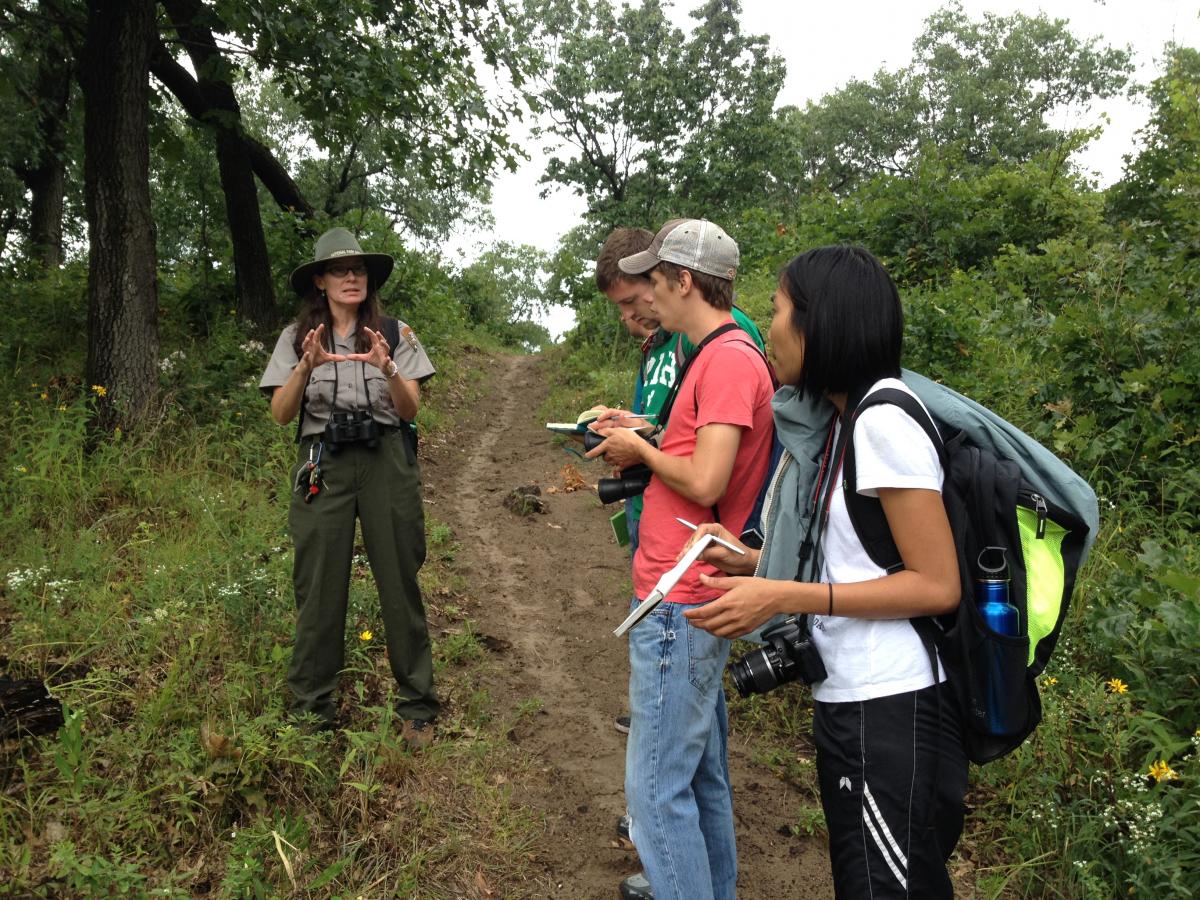
Indiana Dunes National Lake Shore
Students learn from an environmental educator at Indiana Dunes National Lake Shore as part of their Professional Field Studies course.
-
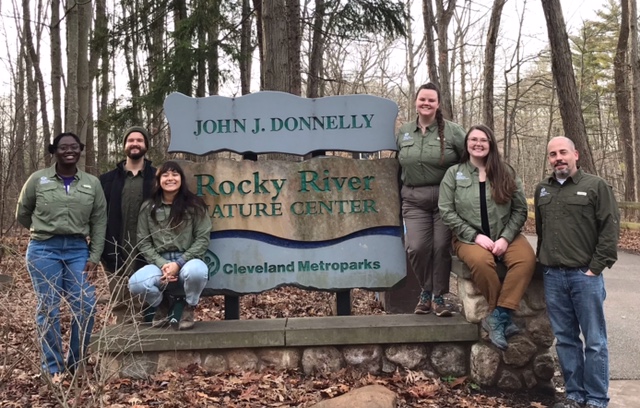
Cleveland Metroparks
The '22 cohort of master's students traveled to Cleveland Metroparks for their courses in Professional Field Studies and leadership. They witnessed leadership theories and practices in application as they toured the parks' nature center, observed their nature preschool and learned about their mobile outreach programming to urban schools. The students also had a round table discussion with various program managers, including women and people of color in these leadership positions.
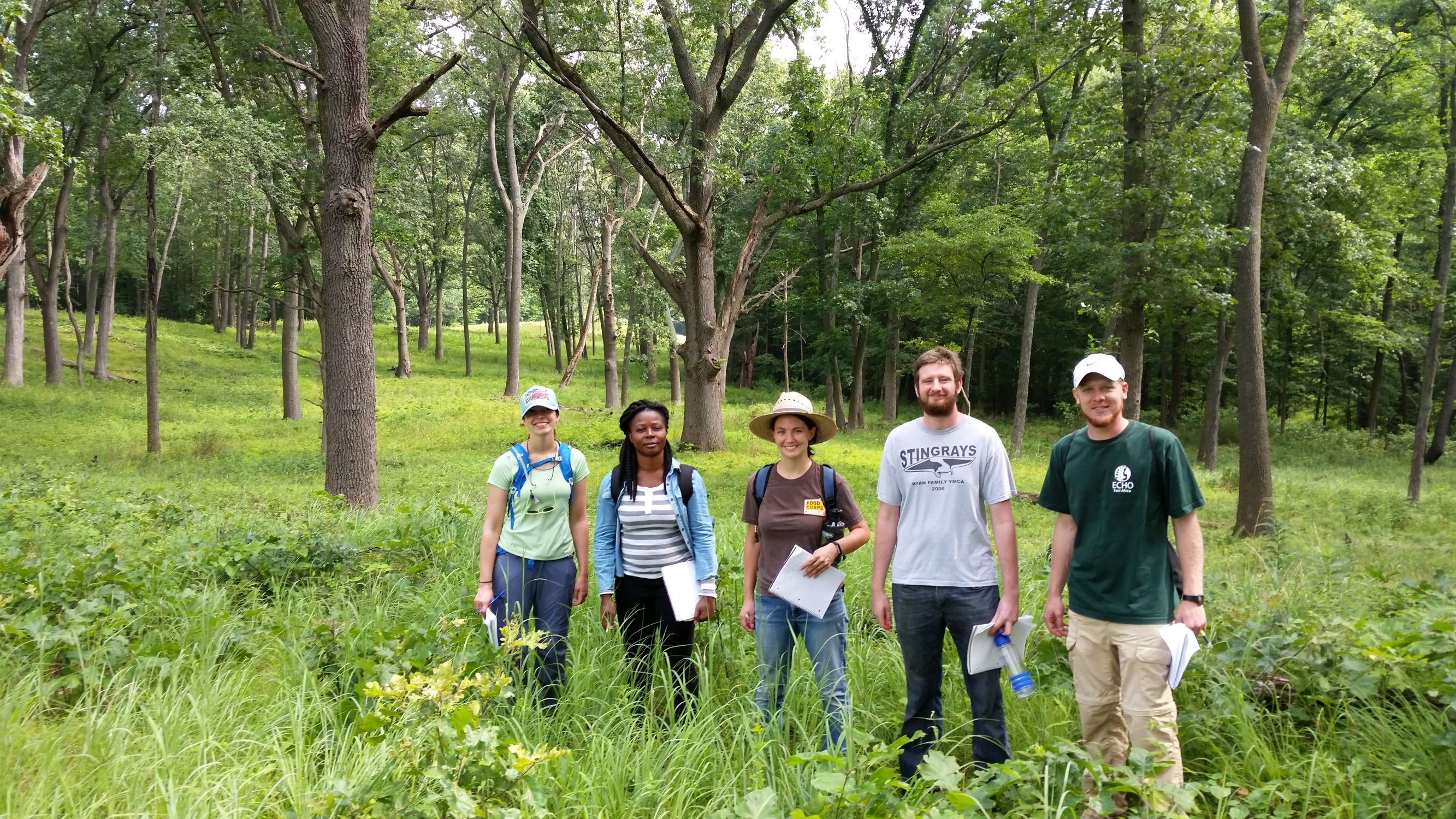
Live and Learn at Merry Lea
A foundation of your experience is exploring and learning about our outdoor classroom: Merry Lea Environmental Learning Center of Goshen College. We are an educational nature preserve that practices farming and nature conservation to provide immersive learning experiences for people of all ages.
Merry Lea Environmental Learning Center of Goshen College is dedicated to:
- Providing a natural sanctuary for northern Indiana’s plants and animals
- Providing environmental education for people of all ages
- Providing a setting for re-creating opportunities that benefit the human body and spirit while not exploiting the land or excessively disturbing its ecosystems




